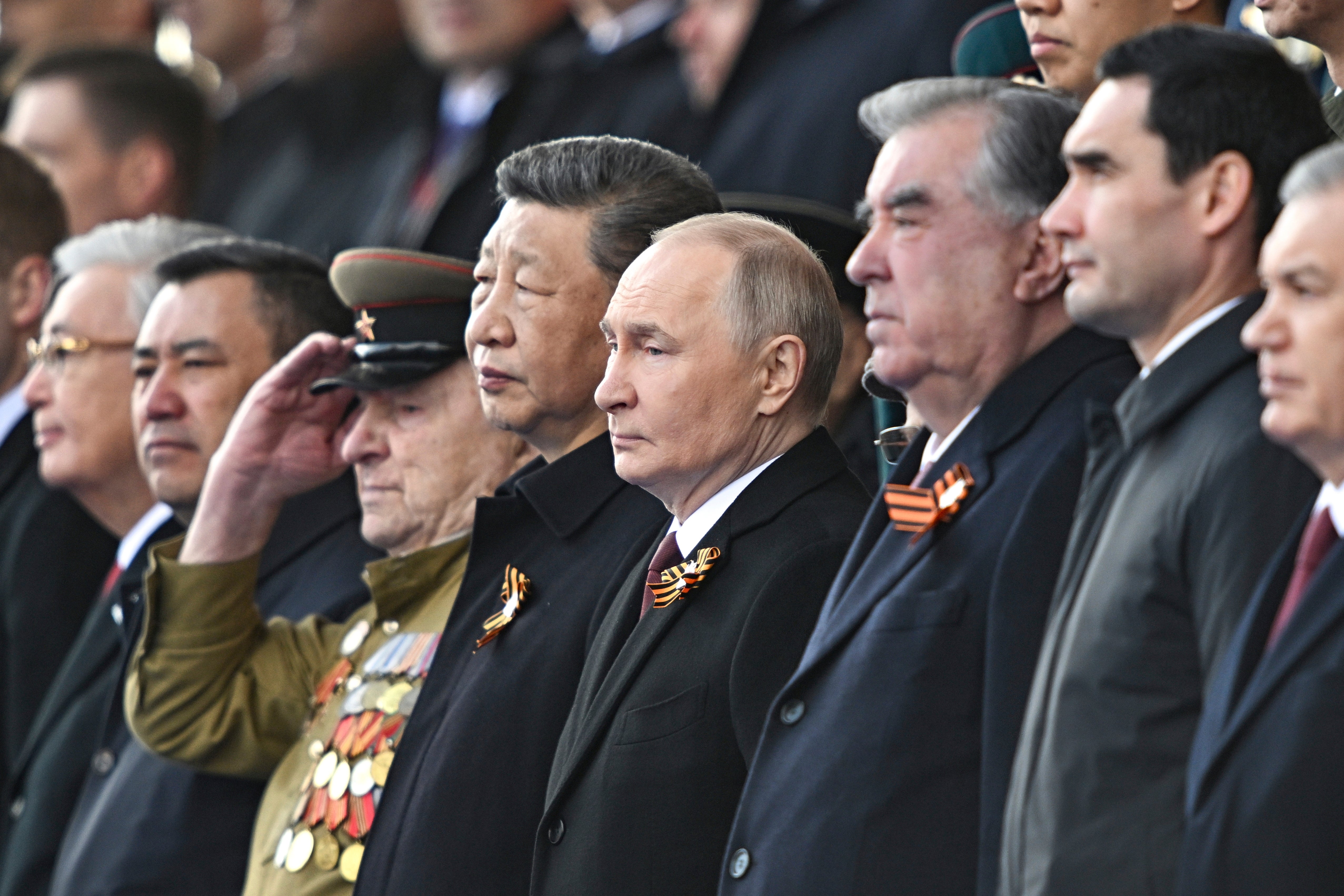Putin’s Victory Day parade was an eerie forecast of war with the West
Russia and the West celebrated VE Day separately – but the world leaders who joined President Putin to mark the end of World War II in Europe give an indication of future battle lines being drawn, writes Mark Almond

Hostility between Britain and Russia may not have been so significant since the time of the Crimean War, but we do have in common our fondness for reminding ourselves of the legacy of the Second World War.
State-sponsored commemorations of VE Day here or Victory Day there may grate on cynics’ nerves – but ordinary Brits, like the average Russian, have a genuinely fond folk memory of patriotic sacrifice and solidarity.
Of course, these sentiments are crudely misused by Kremlin propaganda. President Putin’s speech at the Victory Day parade in Red Square emphasised the “continuity” between his so-called Special Military Operation (invading Ukraine) and the war against Hitler’s invading forces after 1941. The Kremlin’s line that today’s Ukraine is controlled by neo-Nazis is a grotesque misrepresentation. Any neo-Nazism there is perversely reinforced by Russia’s brutal invasion.
In his own VE Day address, King Charles indirectly but clearly rebuked Putin’s propaganda by emphasising that, from Britain’s point of view, preserving peace was the moral lesson of World War II. Maybe it would have punctured Putin’s portrayal of today’s West as the heirs of the appeasers of Hitler rather than Winston Churchill if we had sent a senior royal to salute the Russian veterans and implicitly condemn aggression.
Ukraine backed away from its threats to use drones to disrupt the Moscow celebrations, despite Russia’s own drone strikes continuing until hours before the parade. Nevertheless, the blocking of the internet and mobile phone signals in Moscow during the parade was a sign of how seriously the Kremlin took the threat of Ukrainian sabotage.
But the day went off well for Putin.

Russia’s military power was displayed and as many as 29 heads of state and government were on the podium with Putin for Russian TV cameras, to get the message out that Russia isn’t isolated.
The Western snub of Russia’s Victory Day probably had a domestic compensation for Putin as, inside Russia, there is resentment at how Western popular history has written out the role of the Red Army’s role in crushing the Nazi war machine.
The symbolism of the big international presence was striking, with China’s President Xi centre stage after signing a new comprehensive cooperation agreement with Putin. China is Russia’s strategic hinterland against the West, just as Russia is a resource base for China in its rivalry with the US.
But the presence of Brazil’s Lula da Silva and Egypt’s Abdel Fatah al-Sisi – as well as a swathe of African leaders – was evidence of how far the Western Allies’ 1945 hinterland of Latin America and wartime colonial dependencies have shifted their allegiance to Moscow and Beijing rather than to Washington, London and Paris.
Putin held out an olive branch to the West, particularly the USA, by emphasising the role of D-Day in opening a “second front” against Nazi Germany and speeding up Hitler’s defeat.
Obviously, Putin would have loved to have had President Trump – and the King – alongside him, as well as President Xi, so that he could have placed Russia at the centre of the world.
Yet China plus the Brics states means that Putin holds some serious cards – especially as Trump squanders US economic aces by waging a tariff war on his allies, from Japan to Canada and the EU, whose wealth reinforced American power and influence until now.
Many high-profile prestige events fade quickly from memory. But the implications of the war of words about the legacy of World War II for today’s great power rivals is that future battle lines are being drawn.
Who was – and wasn’t – in Moscow for Putin’s parade could predict much about things to come.
Join our commenting forum
Join thought-provoking conversations, follow other Independent readers and see their replies
Comments